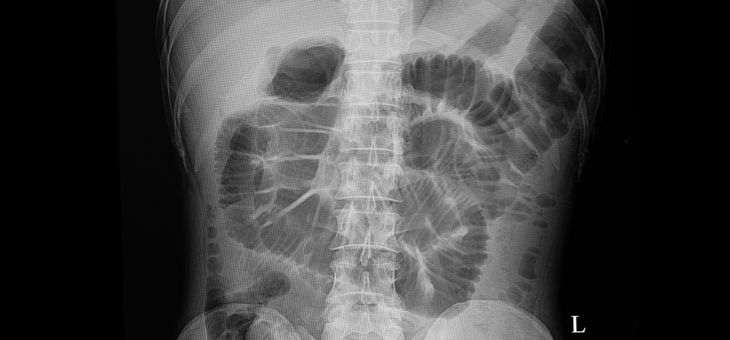Patients with COVID-19 can have bowel abnormalities, including ischaemia, according to a new study.
Several studies have evaluated the chest imaging findings in COVID-19, which has helped improve understanding of how the disease affects the lungs.
More recently, reports have documented that gastrointestinal symptoms, liver injury, and vascular findings are common in these patients.
However, abdominal imaging findings have yet to be widely reported.
Imaging findings may help physicians understand abdominal manifestations in patients with the infection.
The retrospective study included 412 patients admitted to a single care centre from 27 March to 10 April 2020, who tested positive for severe acute respiratory syndrome coronavirus 2 (SARS-CoV-2).
The cohort included 241 men (58.5 per cent) and 171 women (41.5 per cent), with an average age of 57 years.
Records showed that 17 per cent of patients had cross-sectional abdominal imaging, including 44 ultrasounds, 42 CT scans, and one MRI.
Bowel abnormalities were seen on 31 per cent of CT scans (3.2 per cent of all patients) and were more frequent in intensive care unit (ICU) patients than other inpatients.
Bowel findings included thickening and findings of ischaemia such as pneumatosis (gas in the bowel wall) and portal venous gas.
Surgical correlation in four patients revealed unusual yellow discolouration of bowel in three of the patients, and bowel infarction (dead bowel) in two patients.
“We found bowel abnormalities on imaging in patients with COVID-19, more commonly in sicker patients who went to the ICU,” said Dr Rajesh Bhayana.
In two patients who had bowel resection, pathology demonstrated ischaemia with patchy necrosis (injury due to reduced arterial flow with patchy areas of cell death). Both had fibrin thrombi (blood clots) in submucosal arterioles (small arteries in the bowel wall), suggesting bowel ischaemia in these patients might have been caused by these small blood clots.
Lung base findings led to a diagnosis of COVID-19 in one patient who presented with abdominal symptoms only.
“Some findings were typical of bowel ischaemia, or dying bowel, and in those who had surgery we saw small vessel clots beside areas of dead bowel,” Dr Bhayana said.
“Patients in the ICU can have bowel ischaemia for other reasons, but we know COVID-19 can lead to clotting and small vessel injury, so the bowel might also be affected by this.”
According to the researchers, possible explanations for the spectrum of bowel findings in patients with COVID-19 include direct viral infection, small vessel thrombosis, or nonocclusive mesenteric ischaemia.
The authors added that further studies are required to clarify the cause of bowel findings in patients with COVID-19 and to determine whether SARS-CoV-2 plays a direct role in bowel or vascular injury.
“Our study is preliminary, and more work is needed to understand the cause of bowel findings in these patients,” Dr Bhayana said.
How has COVID-19 affected you? How will you come out the other side? Why not tell us in the YourLifeChoices Life in a post-pandemic world survey? You could win a $500 Webjet gift card.
If you enjoy our content, don’t keep it to yourself. Share our free eNews with your friends and encourage them to sign up.
Related articles:
Contact tracing pivotal: WHO
Why? Coronavirus conspiracy theories
Your guide to COVID-19 restrictions

